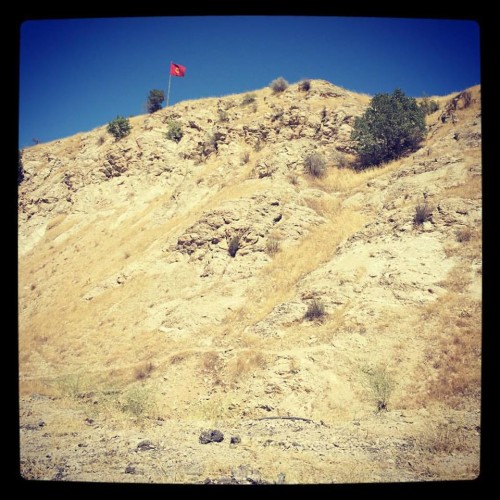Journey to Qandil mountains, the PKK main base in Iraq
Since I started reporting from Iraq and Syria, I always wanted to go to Qandil. Many Kurdish fighters told me about this 28 miles long valley which has become the PKK main headquarter in Northern Iraq. Their stories involved tunnels digged deep into the ground, camouflage training camps, a lot of politics. All of them were sure Qandil is impossible to penetrate. All tales involved a kind of a magical element.
The PKK has been labelled a terrorist organization by the Turkish government and many Western countries, including the US. The PKK picked up an armed struggle in 1984 and started a civil war against Ankara claiming for an autonomous State in which the Kurds will be free. At least 40,000 people, mainly Kurds, died during the conflict.
A lot of things has changed since, starting from the geo-political scenario and alliances on the ground. The global changes imposed a renovation even within the organization which through the past 40 years changed mentality and somehow beliefs. The first main adjustment arrived when the PKK leader and co-founder Abdullah Ocalan, was arrested in Nairobi in 1999. I wrote about it in an article for War Is Boring.
Qandil is a beautiful place. The mountains surrounding the only road that goes through the valley, are steeps and high. Minerals and quartz give them a sort of of purple color that blends in with the trees and bushes. A river runs parallel to the street.
As soon as we got there our driver brought us to his house and asked us to wait for a PKK member. Zagros showed up half an hour later. His polite manner and very good English kind of surprised me. At first he was weary, he wanted to understand why we wanted to come to Qandil and what our objectives were. Once we explained we just wanted to understand what was going on, he opened up and we started talk politics. He explained to us how the organization works, rejected any claims of being terrorists, and assured us the PKK is open to a dialogue not just with Turkey, but any countries.
“We want peace,” he said several times during our meeting. When asked about the PKK attacks to soldiers and oil pipes he underlined how their tactics have changed. “We strike in self-defense,” he claimed.
After he brought us to Zargali, a nearby village, bombed by the Turks on August 1. The airstrikes killed eight people, and wounded at least twenty (Have a look, this is the video). As soon as we started walking around the ruins, a really weird sound started in the background. I could not quite work out what it was and I didn’t think about it until Zagros explained it was a Turkish drone.
The thought of being bombed by the Turks didn’t amuse me. As the sound it’s quite loud, all the valley knew what was happening and most of the civilians retreat to their homes.
The drone gave us an opportunity to talk more with Zagros and asked him questions about the many acronyms in the Kurdish galaxy and the overlapping with the PKK. The Kurds are very much divided even amongst themselves. Politics it’s the main reason of fracture. They even fought each other in several occasions. Now with the war on ISIS they helped them to overcome those differences, they needed to work together. Nonetheless on the front lines I visited, there is a palpable tension between the PKK and the Peshmerga from the KDP — the political party that governs Iraqi Kurdistan. The PKK claims the KDP leans towards Turkey and capitalism. They are keen on a revolution that will free the Kurds and want a region to self-governance. “Feminism and ecology are the main pillars of our political structure.”
The experiment of Democratic Confederalism, or so they called their new political paradigm, is implemented in Rojava, where several ethnic and religious groups are trying to live together. All of them are represented through elections in the new governing body.
Life in Qandil has never been easy, but it has been a secure place for the organization. So far, each attempts to clear the mountain has been unsuccessful. Guerrillas and civilians have developed a strong relationship. Even if the villagers would want them out from the valley (though I am not too sure it will ever happen) it would be almost impossible since the fighters live up in the mountains in complete autonomy. Or so Zagros claimed. Though some news outlet report about some frictions between the two.
We tried to visit the training camps, but we were not granted access due to the Turks airstrikes. “It is too dangerous to go anywhere right now,” continued Zagros. Also, he added, all the camps were closed, they can’t train outside and most of the fighters are just inside the tunnels. He brought us to the cemetery where the first martyr was buried in 1983. Next to the graveyard there is also a small museum where personal objects of dead fighters are kept and displayed.
The journey in Qandil gave me the impression the PKK is ready to commit to peace. Though the future is unclear, especially for them, and a lot will depend on the world powers influence in the region.
